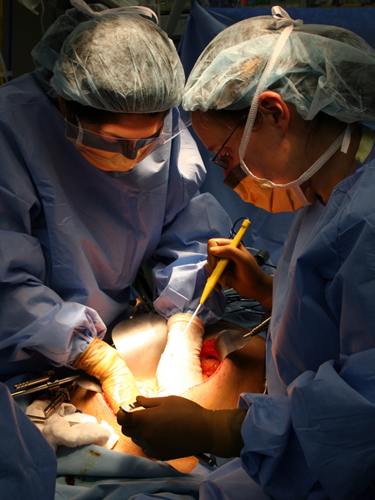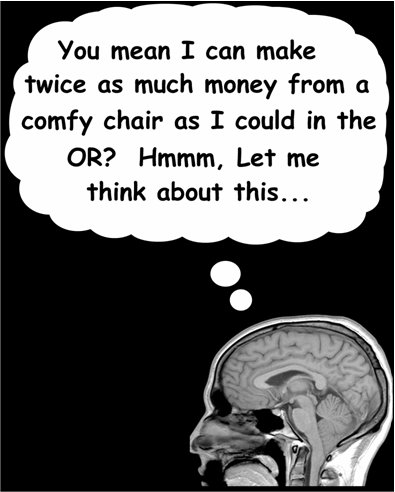A Urology Resident’s Perspective: From an interview with a urology resident from the University of Southern California (USC) in Los Angeles, California
Part of an interview series entitled, “Specialty Spotlights“, which asks medical students’ most burning questions to physicians of every specialty. See what doctors from every specialty had to say about why they chose their specialty and how to match in their residency.
- How competitive is the Urology match?
It is considered a competitive specialty to match into. The website www.auanet.org has some statistics that can help you out. In general there is an approximately 70-80% match rate for students coming directly out of medical school. This number is substantially lower for graduates that did not match the first time around, graduates that took time off after medical school, and international medical graduates. The good news is the number of positions are increasing each year, while the number of applicants has stayed approximately the same. This does vary year by year.
- What must a student do to match well in Urology?
Be very well rounded. Step 1 scores aren’t everything, but many programs will use this score as a screening tool to offer you an interview. Unlike most other specialties, urology does not publish data on average Step 1 scores of matched applicants. There is a generalization that scores above 230 are considered competitive and will get you interviews at most places except for possibly top tier institutions. There are definitely exceptions, and unfortunately these date are not publicized by institutions. Research is not a must, but can definitely set you apart from others, especially if you have presented the research at a meeting or as a published article. This will give you more to talk about during your interviews. Great letters of recommendations from urologists are also important. Having a letter from a well known urologist can really help your application and increases your chance of matching well. Urology is a small field, and most academic urologists know each other well, so a strong letter of recommendation from a leader in the field can take you far.
- What are residencies looking for in a Urology applicant?
- What should students look for in a Urology residency?
Satisfaction – how happy are the residents? Operative experience – do the residents get autonomy when they operate or are they mainly assisting attendings? There are some programs where you will be assisting even as a chief resident. Research – is there a research year built into the program? What opportunities are there for clinical/translational/basic science research? do the residents publish? Location/Social life – although you will be busy, the days you are free you want to be able to have something to do. Do the residents have fun outside of the hospital? Staff – how are they to work with?
- Do you have any advice on the application, letters of recommendation, personal statements, or how to rank programs?
1) Submit your application early! If possible this means the day ERAS is open for application submission (For the 2013 match this date is September 15th, 2012). You can fill out the majority of ERAS ahead of time. Also make sure all your letters of recommendation’s are ready by the time you can finalize and submit your ERAS.
2) In general, only obtain letters of recommendations from urologists. 3 is enough. One is usually from the chairman of your urology department (and often the most important letter), and the rest are from either away institution urologists or a particular attending you worked with extensively and knows you well.
3) The personal statement is more likely to hurt you then to help you. Very rarely do personal statements stand out, and if they do stand out it may not be a good thing. In general be sincere, honest, and to the point in your personal statement.
- What do you wish you knew before application/interview season?
1) If you know you have a possible interest in urology, do a rotation as early as possible in your 3rd year. This will give you time to get to know the urology department at your university and will help you find a research project. Also, meet with your school’s dean regarding your competitiveness. Start talking with the urology residents at your institution and their experiences with applying.
2) Away rotations are important for urology. Not only does it give you an opportunity to see what other programs are like, this is also your chance to show them what can’t be expressed on your application. Start researching the programs where you might want to do an away rotation early on, as applications for away rotations are generally due by February/March of your 3rd year. Importantly, an away rotation can help you just as much as it can hurt you. Think of it as a month long interview. While the month can be extremely stressful, it can also give you the best chance of matching at an institution you might not have thought you had a chance at. Most urology applicants do 1-2 away rotations.
3) If your USMLE Step 1 score is not as strong, consider taking Step 2 early. A substantial increase in your step 2 score can definitely help you.
4) Keep in mind that as of the 2012 match, the urology match is still an early match and it is separate from the regular match. This means that you need to expedite your application as well as letters of recommendation. As soon as your application can be finalized and submitted on ERAS (generally beginning of September), do this. This means your letters have to already be uploaded at this time. Many programs start offering interviews within a week of application submission. Interviews in general start at the end of September and last through mid December. The peak of interviews is during the month of November. On the bright side, all this hard work also means that you also get to match mid-January.
5) Spend lots of time on www.urologymatch.com. There is plenty of good information that can help prepare you for every aspect of urology.
6) Take everything you read on www.urologymatch.com with a grain of salt. The best way to really get to know a program is gathering information from multiple sources (first hand experience with an away rotation, talking to the residents/attendings, reading various opinions online).
- What other advice do you have for students applying to Urology residency?
After your interview season is over, consider doing a second look if you have the time/money. A second look is a 1 or 2 day return visit to a program so that you can see first hand what they are all about. This is definitely not a must, however it can help you with making your match list. I suggest this particularly for programs that you think you will rank high, as this will allow you to experience first hand what the program is like. If you really like a program, try to find out during your first interview if second-look day is something that many people do. Again as much as a second look can help you with how you rank a program, remember that it is the second-look at your for the program as well. Do a second look if you really want to discover more about a program, not to show a program you’re really interested.
Editor's Note: Applying for residency or preparing for your interviews? I highly recommend First Aid for the Match
, The Successful Match: 200 Rules to Succeed in the Residency Match
, and The Residency Interview: How To Make the Best Possible Impression
.









 My name is Andrew and I am a first year resident training to be an ophthalmologist. I created ShortWhiteCoats to provide medical students, residents, and the public with all the information I spent so many hours looking for during medical school.
My name is Andrew and I am a first year resident training to be an ophthalmologist. I created ShortWhiteCoats to provide medical students, residents, and the public with all the information I spent so many hours looking for during medical school.







